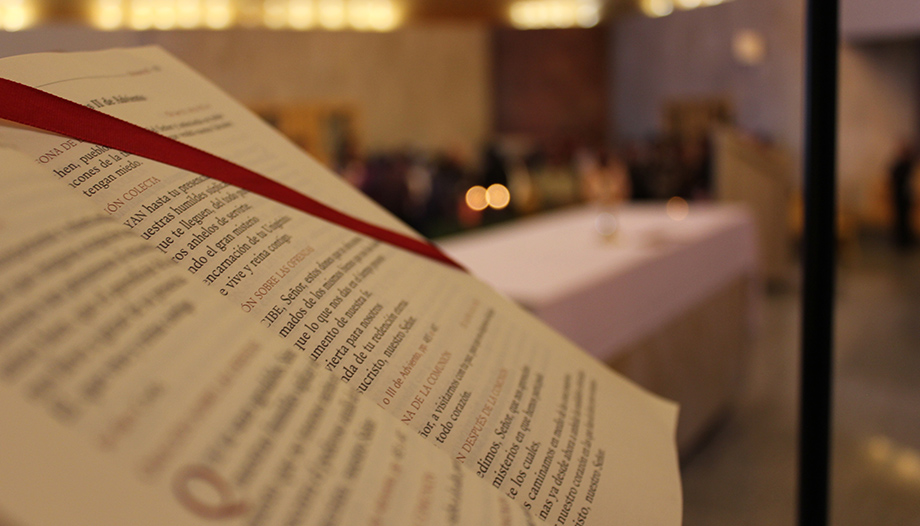Too often we worship God not as Christians but as pious Jews or Muslims. We insist on talking to God – just God, uniquely God – without realizing that this God, though totally one, is also Trinity: i.e. three in one. This mystery is just that, a mystery, and a particularly difficult one at that and we could be tempted to wish that the reality were simpler, or at least that God had not revealed it.
But such a desire would be like wishing that a marvellous piece of classical music were only the four simple chords of pop music, or that an extraordinary work of art didn’t have such depth. The beauty of the divine mystery is that it is an invitation to explore it even more, to dive ever deeper into what is like an infinite ocean of wonders to be discovered.
The readings for today’s feast, the Solemnity of the Most Holy Trinity, begin with a moment when God gave a glimpse of his mystery, revealing himself to Moses on Mount Sinai. The full revelation of his glory would have been too much for Moses – indeed, we can only see it in heaven through a special elevation of our nature by grace – so God places him in the cleft of the rock, saying: “I will cover you with my hand until I have passed by; then I will take away my hand, and you shall see my back; but my face shall not be seen”. God then passes by revealing himself as “The Lord, the Lord, a God merciful and gracious, slow to anger, and abounding in steadfast love and faithfulness”. In this way God begins to share his intimacy with Moses, and through him with humanity.
This is the very rationale of the revelation of the Trinity. God reveals to us his inner life so that we can share it forever in heaven. We understand this very well: the more you love someone, the more you are willing to open to them your intimacy. And so wishing to reveal the fullness of his love for us in Christ Jesus, and having prepared us gradually over history to receive this love, it is through Jesus that God teaches us about the Trinity. As Our Lord tells Nicodemus in today’s gospel: “God so loved the world that he gave his only Son, that whoever believes in him should not perish but have eternal life.” This act of revelation is for the sake of salvation, as Jesus teaches, but even more: it is an invitation to relationship. As we see in the saints, we should have a loving, trusting relationship with each person of the Trinity, loving the Father through Jesus his Son, with the Holy Spirit working in our soul. What St Paul tells the Corinthians in today’s second reading is like a summary of this truth: “The grace of the Lord Jesus Christ and the love of God [i.e. the Father] and the fellowship of the Holy Spirit be with you all.”
Homily on the readings of the Holy Trinity (A)
The priest Luis Herrera Campo offers its nanomiliaA short one-minute reflection for these Sunday readings.







